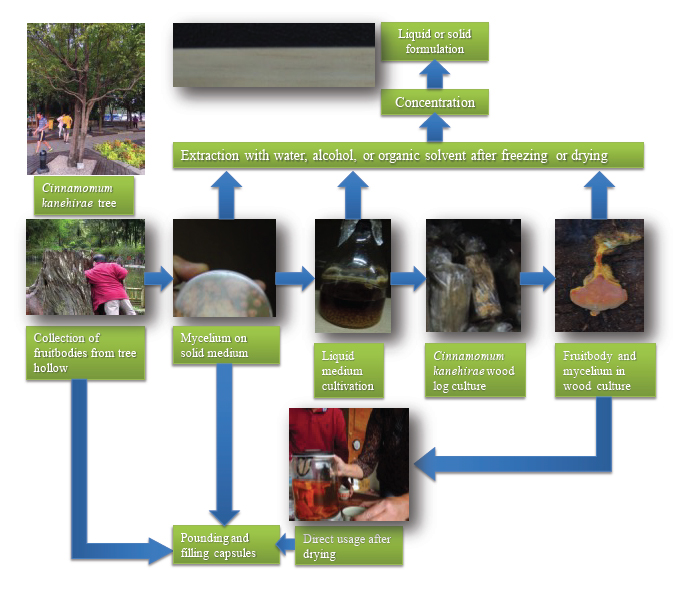
 中央研究院 生物化學研究所
中央研究院 生物化學研究所
Background: Based on traditional and folk medicine, mushrooms have been developed into anti-cancer therapeutics. In this article, a brief overview is given of the most important medical mushroom species and their specific anti-cancer functions and mechanisms. Taiwanofungus camphoratus (Antrodia cinnamomea), is a medical fungus chosen to examine the process from ethnomedicine to developing new products for the market based on scientific, analytic, and experimental evidence. The bioactive compounds have indirect effects in cancer treatment by benefiting the immune system as well as having direct cytotoxic effects on cancer cells.
Taiwanofungus camphoratus is a fungus endemic to Taiwan and one of the most popular known alternative remedies for liver cancer in Taiwan. To date, more than 150 liver cancer patients have survived using T. camphoratus. The treatment has caused tumor shrinking, as well as the disappearance of a tumor altogether in some cases. The ratio between male and female patients has been nearly equal, with ages ranging between 20-79 years. The most effective candidates are those between the ages of 40-60 years.
The complex mixture of bioactive compounds in natural fruit bodies is a challenge for artificial production in vitro. Particular problems in developing T. camphoratus into therapeutics for the global market are its rarity in nature and its close dependence on an endemic tree in Taiwan. These challenges can help promote new solutions which could be utilized in the future with other medical fungi
Keywords: Medicinal mushrooms, anti-cancer therapeutics, Taiwanofungus camphoratus, liver cancer.
